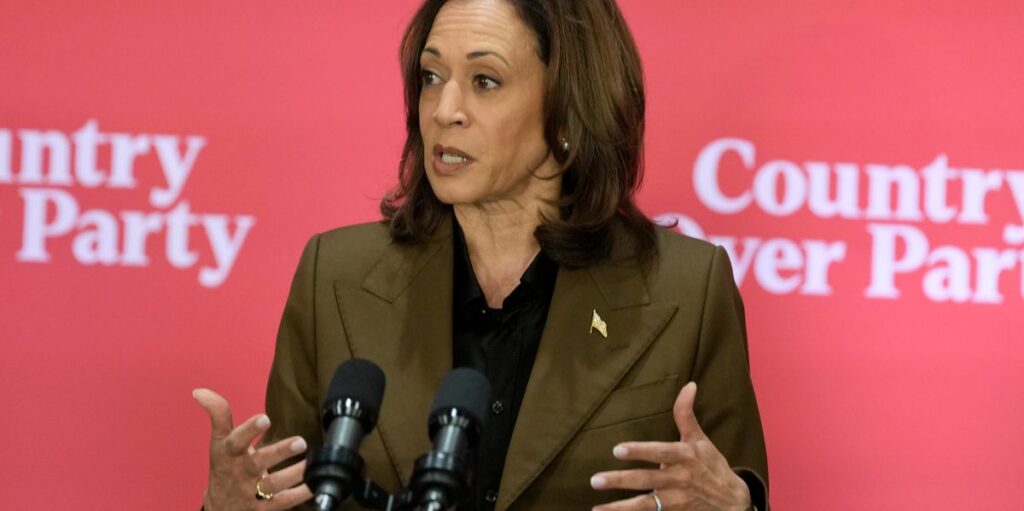On Monday, Vice President Kamala Harris introduced a series of policies specifically aimed at Black men, marking a strategic move to engage a demographic that has historically shown fluctuating support for the Democratic Party, particularly with the emergence of former President Donald Trump as a competitor for their votes. Harris’s “opportunity agenda” for Black men consists of a comprehensive suite of policy proposals designed to address various socio-economic challenges this community faces. Key components include initiatives for one million loans targeting Black entrepreneurs, investment in mentorship and training programs, health equity initiatives tackling diseases like diabetes and prostate cancer which disproportionately affect Black men, and support for legalizing recreational marijuana, allowing Black men to participate in its economic potential.
The impetus behind these proposals emerged from Harris’s nationwide economic opportunity tour, where she engaged with Black men in cities such as Atlanta, Charlotte, and Detroit to specifically listen to their experiences and challenges. This outreach aligns with her ongoing campaign efforts, including a recent meeting with Black farmers in North Carolina and a forthcoming town hall with “The Breakfast Club” host Charlamagne Tha God in Detroit. Harris’s campaign articulates that economic concerns, such as inflation, healthcare costs, and housing, are of paramount importance to Black men. Quentin Fulks, the campaign’s deputy principal manager, emphasized that the new policies aim to foster generational wealth and offer tangible solutions to long-standing economic barriers.
Among Harris’s proposals, the plan to grant one million loans to Black entrepreneurs stands out as a significant effort to empower marginalized communities. These loans would be facilitated through the Small Business Administration along with local banks, with features designed to provide financial relief, such as forgiveness up to $20,000 for certain loans. Additionally, the agenda seeks to bolster support for Black farmers and ranchers and aims to double the availability of quality apprenticeship programs while pushing Congress to reform hiring practices that currently disadvantage individuals based on criminal arrest histories and credit scores.
This initiative comes amid heightened discussions about the engagement of Black male voters, particularly after former President Barack Obama’s recent rally in Pittsburgh, where he implored Black men to overcome excuses and support Harris’s candidacy. Quentin Fulks noted the skepticism Black men often feel toward political promises, stating that many believe politicians only seek their votes at critical junctures without following through on commitments. This sentiment reinforces the importance of establishing trust and demonstrating that the proposed policies are not just platitudes but actionable and achievable goals aimed at benefiting the Black community.
Recent polling data from The New York Times indicated that Harris’s support among Black voters is not as robust as it was for previous Democratic candidates, revealing a tighter race with significant numbers of Black men expressing support for Trump. Despite this, experts note that previous polling has often underestimated Black voter turnout for Democrats in past elections. While concerns about the Black male vote’s volatility may be prevalent, some analysts contend that the narrative is exaggerated. A Washington Post-Ipsos poll found that Black men’s voting patterns do not significantly deviate from those of Black women, challenging the notion that Black men are less Democratic-leaning.
In light of this nuanced voting landscape, the Harris-Walz campaign is diligently focusing on retaining Black male voters to prevent any drift towards the Republican Party. By hosting events in battleground states and directly addressing the needs and concerns of Black men, the campaign aims to reinforce its commitment to this demographic. The introduction of Harris’s opportunity agenda signals a recognition of the issues at stake and embodies a larger effort to engage a critical voting bloc, build authentic relationships, and navigate the complex dynamics of race and politics in the run-up to the election.

